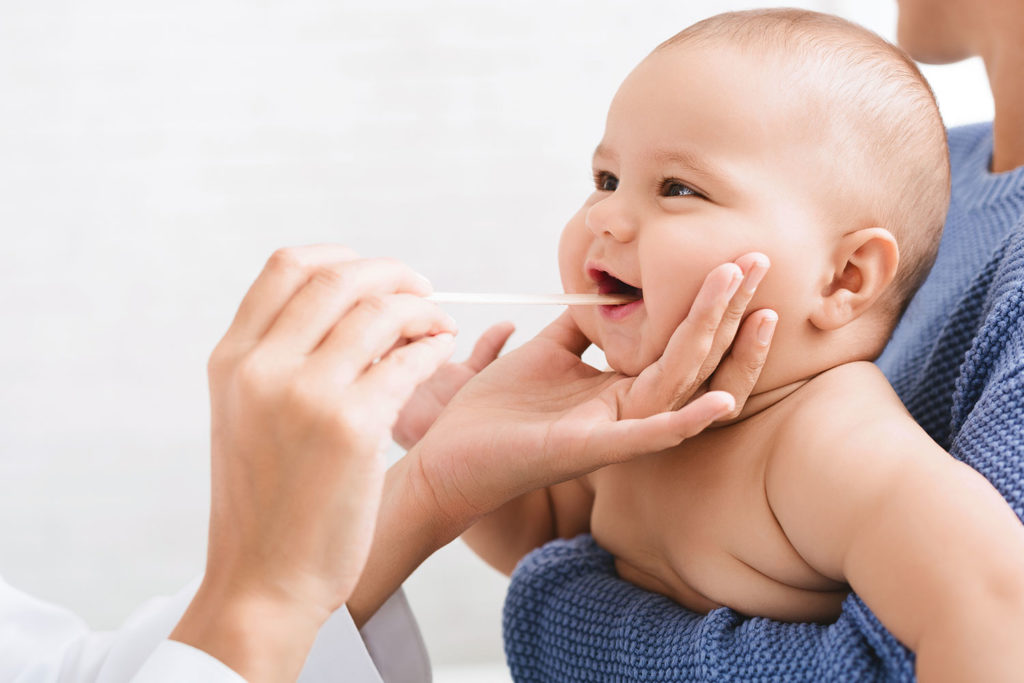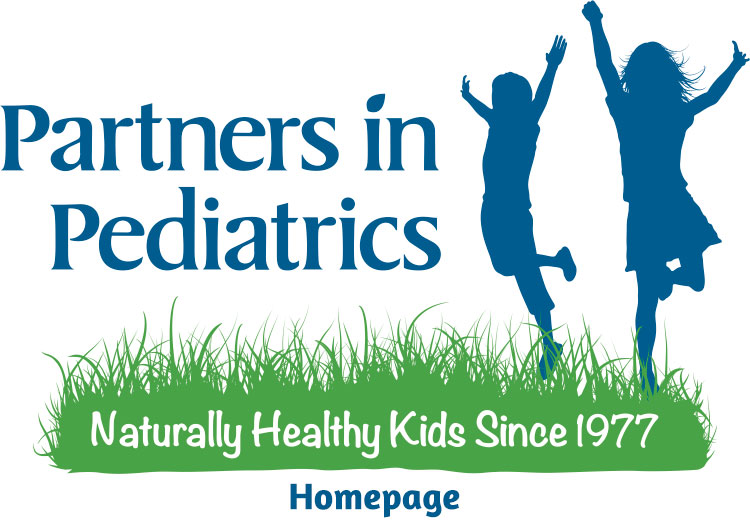During the COVID-19 pandemic, it’s natural to think that the best way to protect your child is to keep them out of public places where they might encounter the virus. In fact, some of the strategies used to slow the spread of disease in communities have included postponing or cancelling non-urgent elective procedures and using telemedicine, instead of face-to-face encounters, for some medical visits. Partners in Pediatrics (PIP), as your Denver pediatrician and medical home, is now offering telehealth visits for select visits. The option of a telehealth visit is not available, however, for well care visits for your children. For many reasons, we really need to see our Well Care patients in person. Thus, the question becomes whether the benefit of attending a well care visit, and receiving necessary immunizations, counseling and screenings, outweighs the risk of possible exposure to other children and adults who may or may not have COVID-19. Despite this risk, PIP and the American Academy of Pediatrics now recommends coming into our offices for well care visits, knowing that we are taking extensive precautions to make our offices safe. The purpose of this blog is to provide you with helpful information to allow you to make an informed decision with input from us, your integrative pediatrician. We strongly believe that the benefits of regular Well Care visits at PIP FAR outweigh the risks in our carefully-tended PIP offices. Please do not hesitate to contact us with any questions or concerns you may have!
Well Care Visits: When and Why?
The American Academy of Pediatrics (AAP) has developed a set of comprehensive health guidelines for well-child care. It is recommended that the first visit occur when your baby is 3-5 days old–after leaving the hospital, that first follow-up visit should happen in person so your baby can be carefully examined, measured and weighed accurately. Support for breast feeding is critical at this time. Additional well care visits are recommended at the following ages: 2 weeks, 2 months, 4 months, 6 months, 9 months, 12 months, 15 months, 18 months, 24 months, 3 years of age and then annually thereafter until age 21.

So why are well care visits so important? The AAP has identified the following benefits of this vital aspect of your child’s health care:
- Prevention. During well care visits, your child gets the opportunity to receive scheduled immunizations to prevent potentially life threatening &/or severe illnesses. Such visits also provide an opportunity to ask your pediatrician about nutrition and safety in the home and at school.
- Tracking growth and development. You can see how much your child has grown in the time since the last visit, and talk with your doctor about your child’s development. You can also discuss your child’s milestones, social behaviors and learning. Of special note, one of our most important tasks is picking up developmental lags or delays. The earlier we can do so, the better the chances that we can intervene with diagnosis and treatment – and early treatment makes a huge difference in outcomes.
- Raising concerns. You should make a list of topics you want to talk about with your child’s pediatrician, such as development, behavior, sleep, eating or getting along with other family members. It is suggested that you bring your top three to five questions or concerns with you to talk with your pediatrician at the start of the visit.
- Team approach. Regular well care visits create strong, trustworthy relationships among pediatrician, parent and child, and this team approach helps develop the optimal physical, mental and social health of your child. The AAP recommends well-child visits as a way for pediatricians and parents to serve the needs of children. As they grow up, Well Care visits also give your children the chance to learn to take responsibility for their health and habits, and teaches them to advocate for their needs, a skill that will help them navigate successfully to young adulthood.
Important Recommendations and Guidance Regarding Well Care Visits During COVID-19
As stated, coming to PIP’s offices for regular, up to date well care visits is STRONGLY recommended, even in this time of COVID-19. Although we understand your concerns about your family’s exposure to the virus, a failure to obtain screenings for growth, behavioral, mental health, risk issues and important immunizations for your child could put them at risk for measles, whooping cough and other illnesses that could potentially be more life-threatening than COVID-19 appears to be to children. To that end, the Centers for Disease Control and Prevention (CDC) and the AAP have emphasized the importance of maintaining vaccination schedules, particularly for younger children. We agree!
To help you make your decision about whether or not to schedule well care visits at our offices, we want you to know the steps we are taking to protect our patients–your families! Consistent with the guidance from the AAP, Well Care only times are morning through early afternoon. Sick patients are seen at the end of the afternoon or at various times by telehealth, if appropriate. When you come into our office, you will notice that all providers and staff members in patient care areas are wearing masks, in line with recommendations from health departments. Temperature checks are performed not only on our patients, but our staff and providers and all visitors to PIP every day. If visitors are ill during well care hours, we ask that they reschedule the visit. Rest assured that we are also taking extra steps to ensure the cleanliness of our offices, including patient waiting areas and care areas. We want YOU, as well as all of us, to be safe and healthy!

Despite the above precautions, it is understandable that you may still have concerns about scheduling well care visits during COVID-19. However, regardless of those concerns, we strongly emphasize the importance of:
- Newborn Care: bringing your newborn baby into our offices for in-person newborn care. Remember, the AAP states that it is important that the first visit to your pediatrician, after leaving the hospital, occurs when your baby is 3-5 days old, and that it happen in person. At this visit, we will check your baby for jaundice, make sure feedings are going well and that your baby hasn’t lost too much weight, and will address any concerns that may have developed at home (including relating to COVID-19). The Hepatitis B vaccine is started around birth to decrease the risk of chronic complications from that particular virus.
- Infants and Young Children (through 24 months): consistent with the CDC’s and the AAP’s recommendations, bringing your young children (through 24 months of age) in for well care visits and immunizations. As outlined by our physician assistant, Ben Jessen, in his fantastic book Obvious Parenting, Seven Simple Keys to Supporting Wellness, any drastic changes in growth will be picked up and addressed at these visits, and vital measurements (such as height, weight and head growth) will be performed. The first set of vaccines are recommended at the two month well-child visit, and vaccines are also usually recommended at the 4, 6, (9), 12 month, 15 month and 18 month well care visits. In addition, a yearly flu vaccine is recommended each fall. Vaccines are started early because some infants can develop serious illness/complications from contracting vaccine-preventable diseases. Think of it this way–vaccines “teach” a child’s immune system how to recognize a potential disease and prevent that virus or bacteria from being able to overwhelm your child’s body. Furthermore, vaccines protect not only your child, but children with whom your child may come in contact (and vice versa). Clearly these visits help provide a strong foundation for your baby’s health and development! Please reach out to us, as your integrative pediatrician in the Mile High City, with any questions or concerns you may have regarding the ages various vaccines are recommended, the reasons they are recommended, what the risks are of refusing the vaccines, and what the possible side effects of the vaccines are. We are here to help!
- 2 1/2 years (30 months): as per AAP recommendations for care and guidance for families, PIP will begin offering 30 month well care visits later this summer! In addition to typical growth and development issues, this visit will offer timely advice regarding picky eaters, sleep/nap issues, toilet training, social enrichment, etc. Many of our families have expressed a desire for this opportunity, and most insurers who pay for “well care” now cover it, so PIP is going to make it happen soon!
- Children ages 4, 5, 11 and 12 are at critical ages for screenings and immunizations at Well Care.

Although guidance from the AAP provides that well care visits for those in middle childhood and adolescence may be rescheduled to a later date, we are now confident that this is still an important time to schedule. (For some children with special health conditions, or those who are behind on immunizations, rescheduling may not be a good idea. Talk to your pediatric care provider to make a determination about whether or not to do so.) Even if a decision is made to reschedule well care visits in this age group, it is important NOT to wait TOO long on immunizations. One concern is that, if booster shots are missed (for diseases like measles, mumps and rubella for 4- and 5-year-olds, and tetanus and whooping cough, for 11-year-olds), immunity will begin to wane. It is also recommended that kids receive their first meningitis vaccine at 11 years, and preteens are recommended to get the HPV vaccine series, which protects against certain types of cancer. We also recommend that your child get the seasonal flu vaccine annually.
As your holistic pediatrician in Colorado, practicing integrative medicine, we hope that the above information will help you to make an informed decision about how to best protect your child’s health through well care visits during the time of COVID-19. We encourage you to contact us with any questions or concerns you may have and to schedule your child’s well care visit, as appropriate. We will continue to do our best to answer your COVID-19-related questions as they relate to the health of your kiddos. Stay tuned!



Leave a Reply